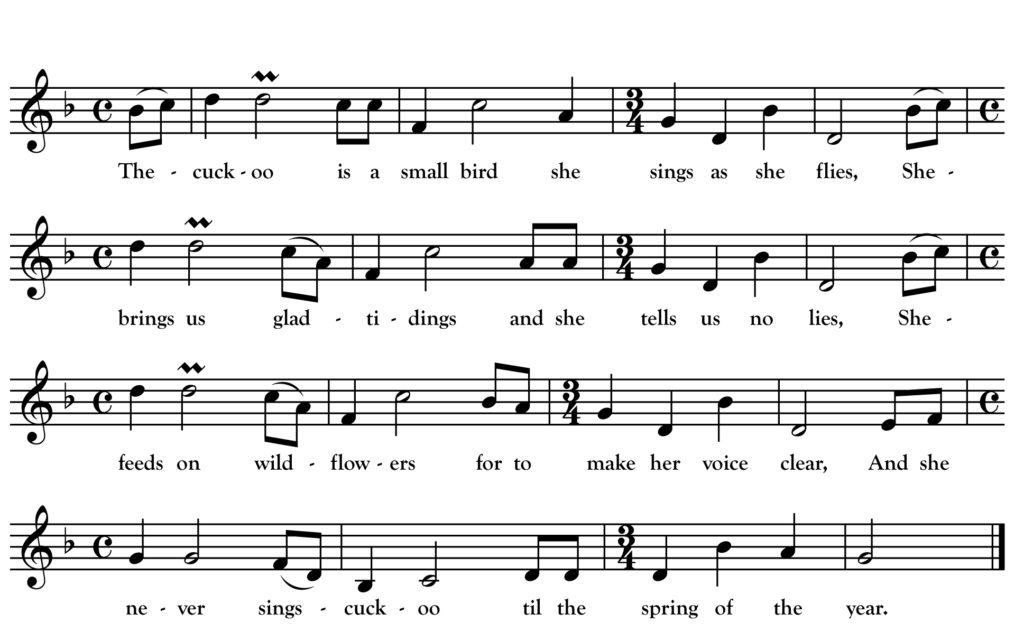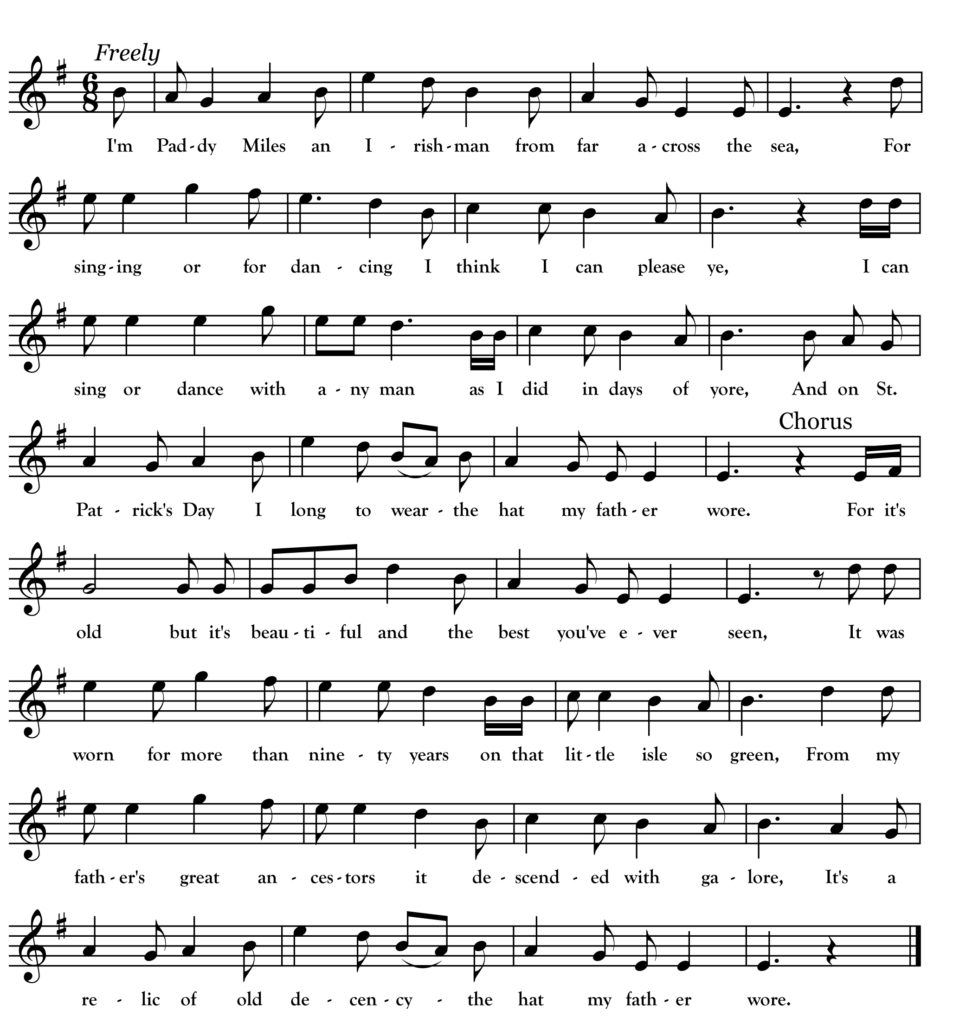The Cuckoo

Our meetings are pleasure, our partings are grief,
But a false-hearted young man is worse than a thief,
For a thief can but rob you and take all you have,
But a false-hearted young man will bring you to the grave.
The grave it will rot you and bring you to dust.
A false-hearted young man no maiden can trust,
They will kiss you and court you fair maids, to deceive,
And there’s not one in twenty that you can believe.
Oh, I can love little or I can love long,
I can love a new sweetheart when the old one is gone,
I can tell them I love them to give their hearts ease,
And when their back’s to me I will love whom I please.
Most of my song-sleuthing is aimed at finding English language songs that traveled across the north Atlantic with Irish immigrants and took hold in the north woods regions of North America. This particular Irish repertoire spread throughout the white pine belt as logging and other industries moved westward through the 1800s. While the songs can be traced, with almost no audio recording evidence of singers recorded pre-1920, it is harder to speak authoritatively about singing style in the lumber boom years of the 19th century. Still, it is safe to state that Irish singing style, as it existed in that century, did mark the approach used in the north woods. I think it is also safe to say that the blends of Black American and Scots-Irish song traditions that formed the folk traditions in Appalachia and further south were less present in the north woods historically. There was an Irish-influenced “woods style” of singing that was distinct from styles prevalent to the south.
Of course, singers of those earlier times didn’t worry as much about these distinctions as we do! And the songs themselves crossed from community to community regardless of origin. This month we have a song that began as a broadside ballad in England and, skipping Ireland almost entirely, took hold in the American south where it became a standard of the Appalachian repertoire (and Americana music today). Whether “The Cuckoo” stopped in the lumbercamps before going south is unknown but it did end up in the repertoires of several woods singers in New England and the Canadian Maritimes. It is interesting to compare the stylistic differences between how it was sung by northern singers and the more commonly heard southern versions (for a quintessential southern version see this amazing video on YouTube of Clarence Ashley).
Thanks to the massive collection of recordings brought together by Helen Hartness Flanders and now available freely online via archive.org, we have several northern versions of this song to enjoy. The melody and first verse above are from Hanford Hayes at Stacyville, Maine as recorded by Flanders in May 1942. The additional verses are from Nova Scotia/Maine singer Carrie Grover. A similar melody (basically a pared down version of lines 3 and 4) was used by singer George Edwards in the Catskills area of New York.
I love Hayes’ dark and quirky melody and his leisurely style. I’d recommend listening to the online recording to hear the way he ornaments the long note in the first bar of each line. His style is masterful and reminiscent to me of the great Angelo Dornan of nearby New Brunswick.


